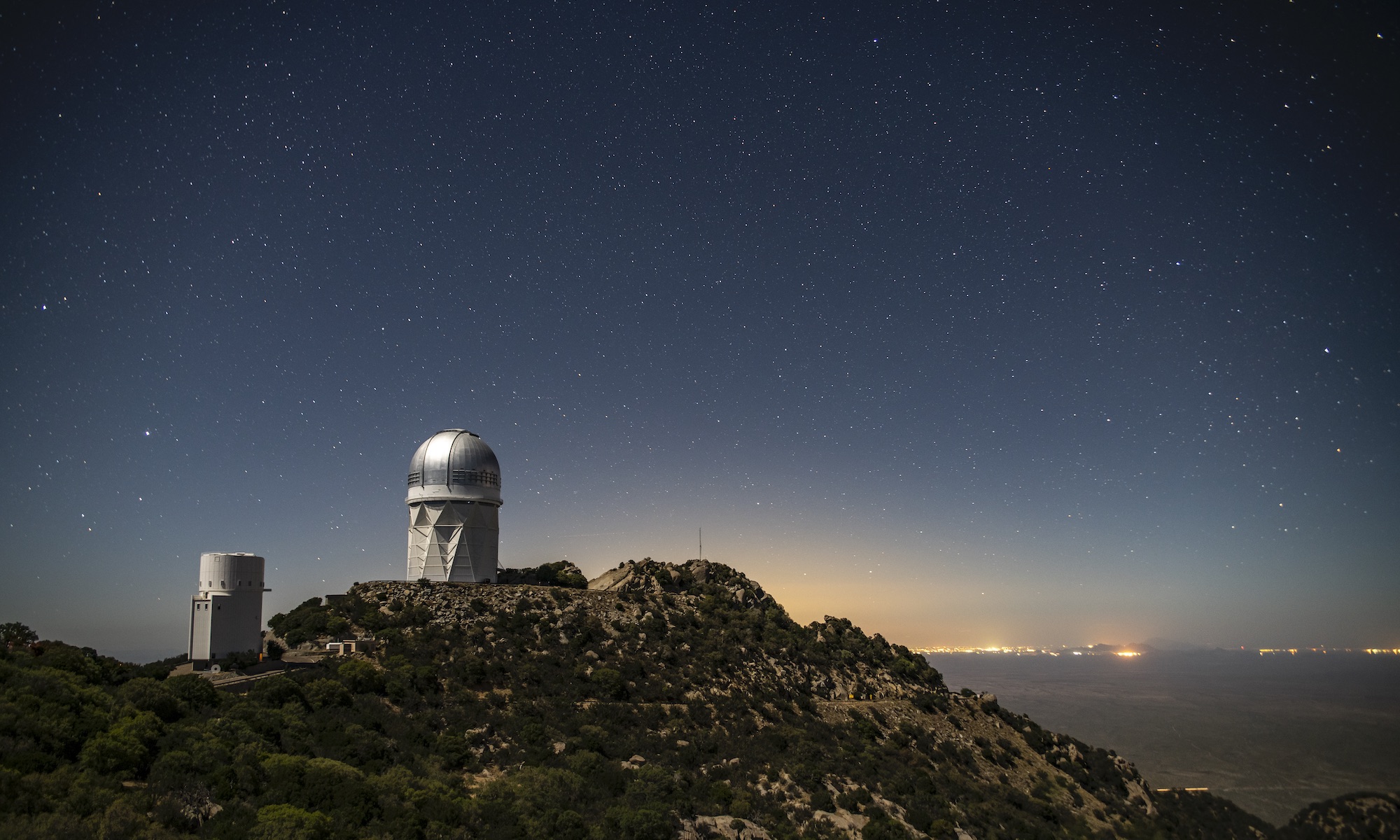Dark Energy Surveys
For an overview, see Cosmology in the 2020s [ slides | video ] from ICHEP2020 or Towards Dark Energy (2021 Colloquium).
Vera rubin observatory
The Vera Rubin Observatory is a new optical telescope under construction in Chile, scheduled to begin a 10-year Legacy Survey of Space and Time (LSST) in 2021.
I have been a member of the Rubin Observatory Science Advisory Committee since 2014, so please contact me with questions, advice or input on any aspect of the LSST science effort. I am also a member of the Department of Energy Cosmic Visions Dark Energy Group, so welcome your input on the DOE HEP Cosmic Frontier program.
Dark energy science collaboration (DESC)
DESC is a collaboration of about 1000 scientists formed to make high-accuracy measurements of fundamental cosmological parameters using LSST data.
My group seeks to understand and mitigate the systematic uncertainties of cosmological parameters inferred from the weak lensing of galaxies. We focus on two areas: the impacts of blended sources on algorithms for galaxy detection and measurement, and the estimation of galaxy redshifts using machine learning methods. We also develop simulations to help study systematic uncertainties.
Further reading:
- Machine Learning Applications to Blending Challenges
- 2018 Blending Workshop
- The DESC Science Requirements
- Blended source simulations
- Machine learning in the LSST era
- Wavelength dependent effects in CCD response
- FringeScience
- How to use statistics to describe the large scale structure of the universe
- Effects of overlapping sources on cosmic shear estimation
Dark energy spectroscopic instrument (DESI)
DESI is a collaboration of over 700 scientists and engineers formed to build a new spectroscopic instrument and measure the effects of dark energy on cosmic expansion. DESI started its five-year survey on 14 May 2021. I am a DESI builder and manager of the DESI focal plane system.
My group focuses on analyzing the high-redshift sample of quasars as backlights to map the distribution of neutral hydrogen, and optimizing the instrument and operations software performance. We previously developed simulations to help design the instrument and survey strategy.
Further reading:
- 3D interactive visualization of early DESI data
- GFA ETC Pipeline
- Implications of a transition in the dark energy equation of state for the H0 and σ8 tensions
- Sky Camera Final Design Review
- Survey Margin and Simulations
- The DESI Instrument Control System: Status and Early Testing
- Model independent inference of the expansion history and implications for the growth of structure
Machine Learning
We are particularly interested in machine-learning approaches to astronomical data analysis and statistical inference, and ways to effectively enable scientists to leverage modern machine-learning methods.
Further reading:
- Machine Learning in the Physical Sciences [ video ]
- Lectures at KSPA 2019
- Empirical Study of MC Dropout in Various Astronomical Observing Conditions
- ContextNet: Deep learning for Star Galaxy Classification
- Lectures at 2nd ASTERICS-OBELICS International School
- Machine Learning & Statistics graduate course
- Cosmological expansion history inference using Gaussian processes
- Lectures at LSST Data Science Fellowship Program
Group Members
Current
- Abby Bault, PhD student
- Matt Dowicz, PhD student
- Dylan Green, PhD student
- Adam Shandonay, PhD student
- Tasneem Khokhar, physics major
Recent Alumni
- Javier Sanchez, postdoc
- Bela Abolfathi, PhD 2022
- Noble Kennamer, PhD 2022
- Daniel Margala, PhD 2017
- Gabi Vass, BSc 2021
- Christine Caro, BSc 2021
- Michelle Ficht, BSc 2021
- Andy Park, BSc 2021
We gratefully acknowledge the support of the U.S. Department of Energy Office of Science.
